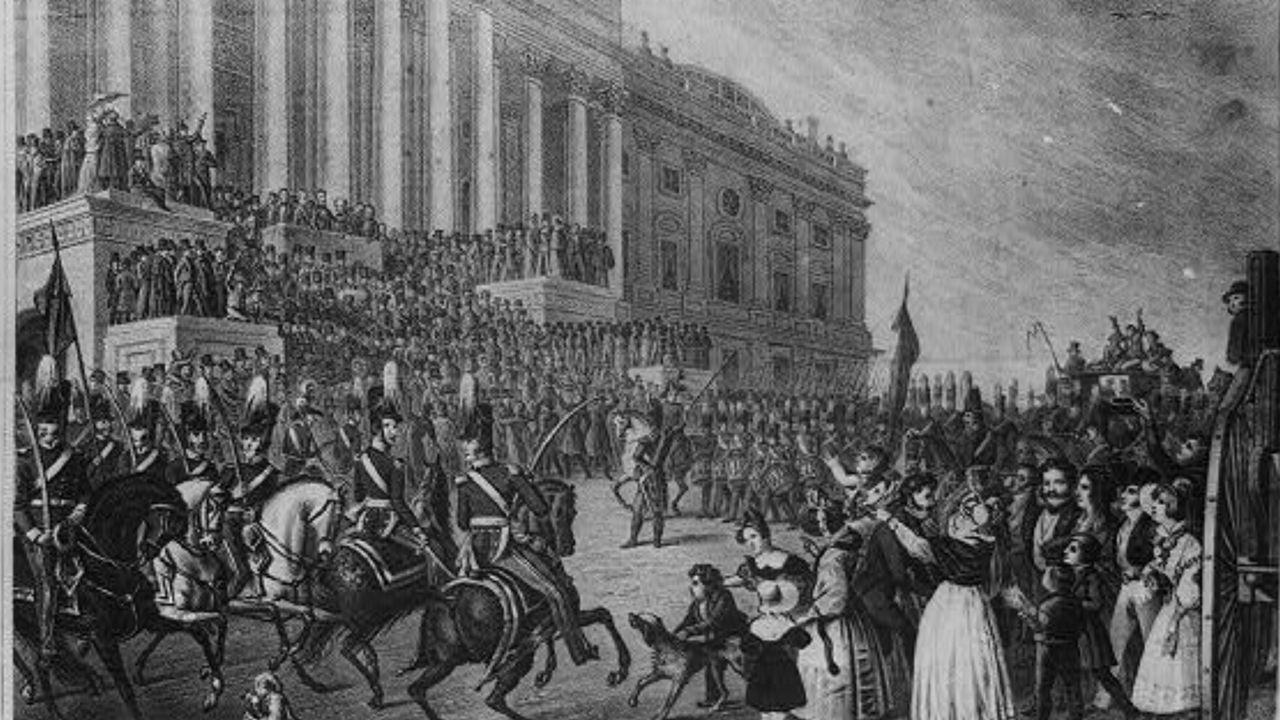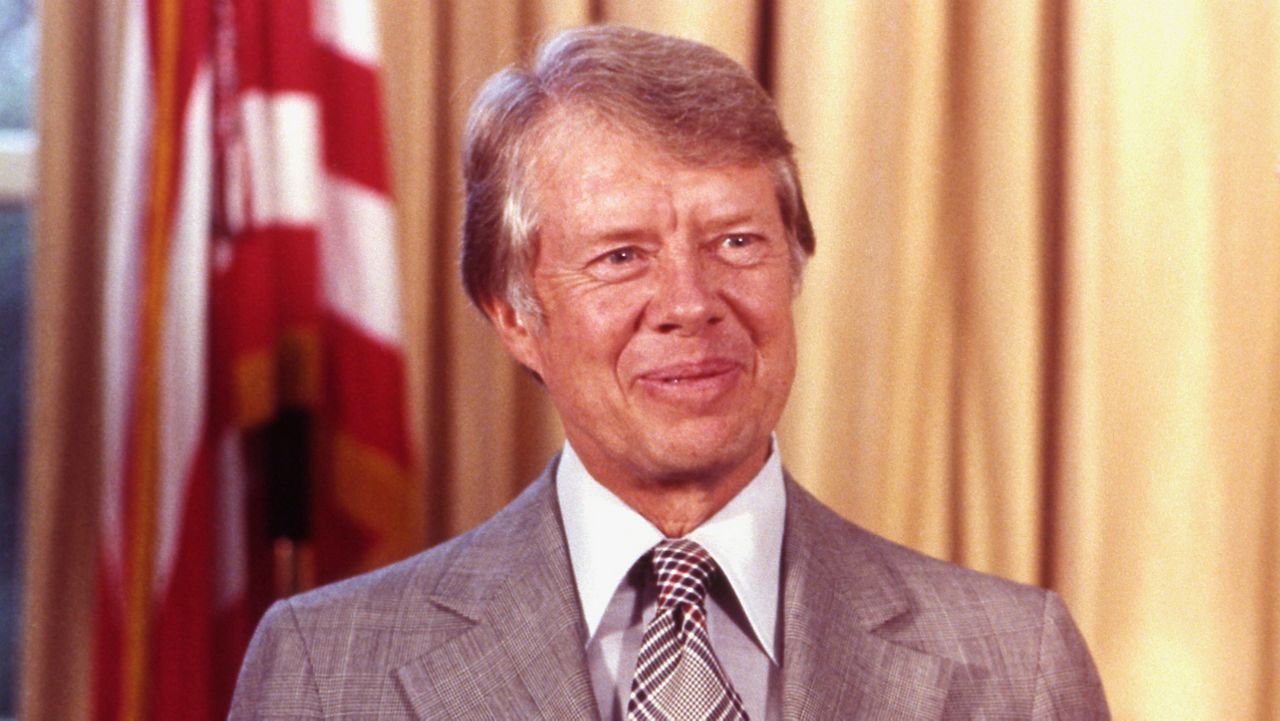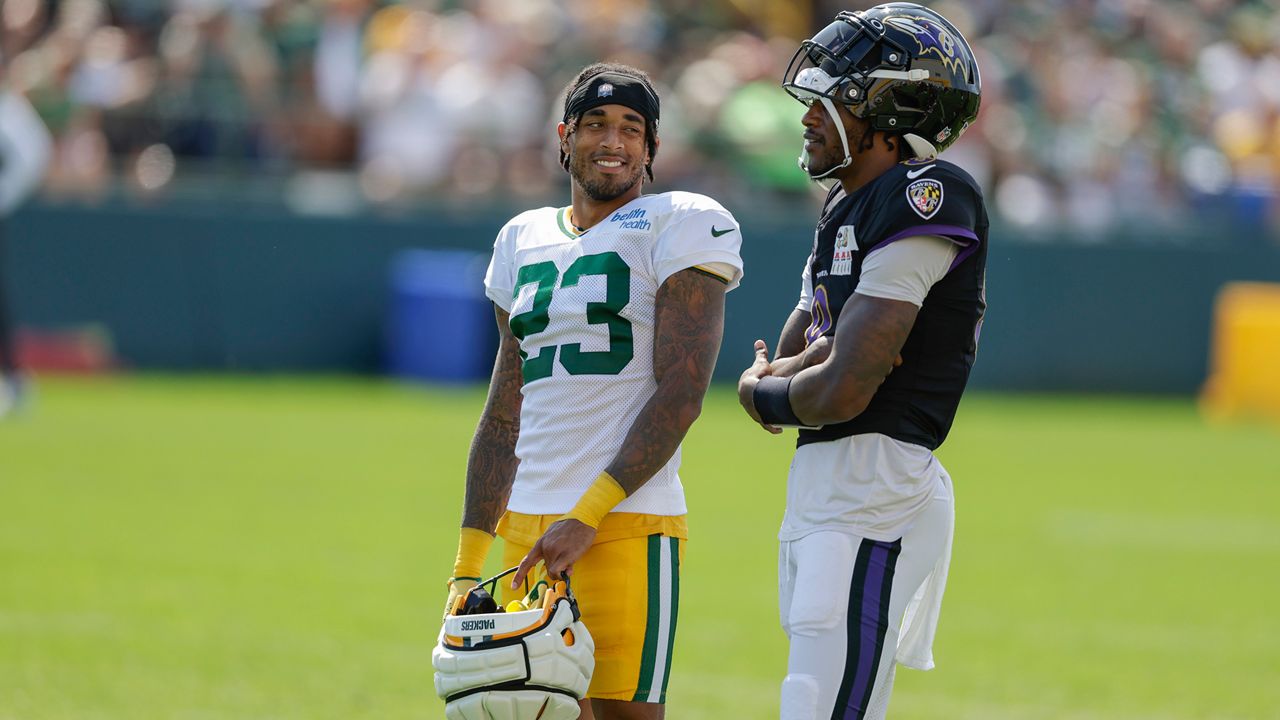APPLETON, Wis. — Marsha Dawson recently settled into a familiar spot, a donation chair at the Community Blood Center in Appleton.
“This will be my 16th gallon. I’ve donated for many years. Every eight weeks I try to do it,” said Dawson.
The center relies on its donors to supply over 30 Midwest hospitals with blood. Someone in the U.S. needs blood every two seconds, according to center officials.
“Oh, it’s easy, and you get cookies and hot chocolate, coffee. It’s just a good feeling to donate,” said Dawson, regarding her experience.
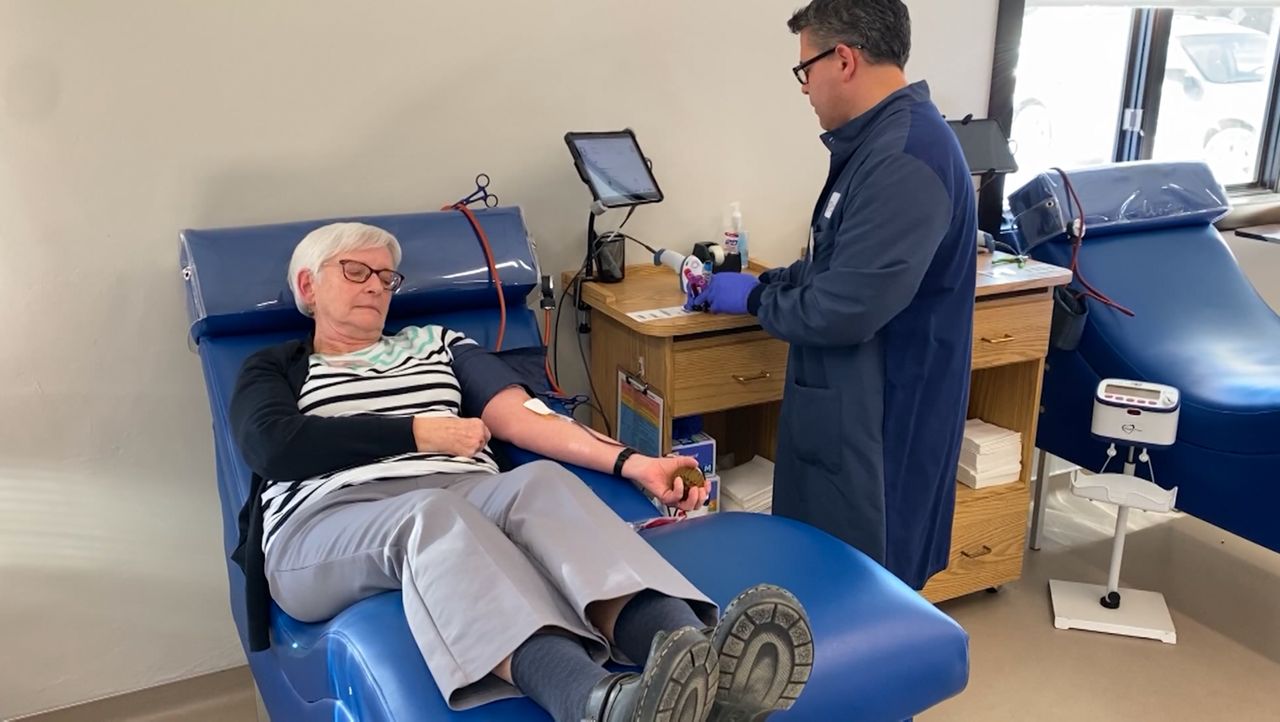
And she doesn’t just give her blood. Dawson also gives her time. Before her donation, she finished up a three-hour volunteer shift at the center’s cafe.
Another volunteer, Penny Bernard Schaber, also takes a weekly shift in the cafe. She said she enjoys handing out pins when donors hit milestones.
“It takes eight donations to make one gallon. This gentleman had just gone past that, and he passed his two-gallon mark, so I gave him his two-gallon pin, which is pretty exciting,” said Bernard Schaber.
Jessica Klingberg oversees the center’s 300 volunteers. She called them the lifeblood of the organization, which annually collects over 50,000 blood donations.
“We are built to connect lives and share lives as the mission of our organization. These volunteers show up every day to support our lovely donors. They’re just absolutely wonderful,” said Klingberg, Community Blood Center volunteer program manager.
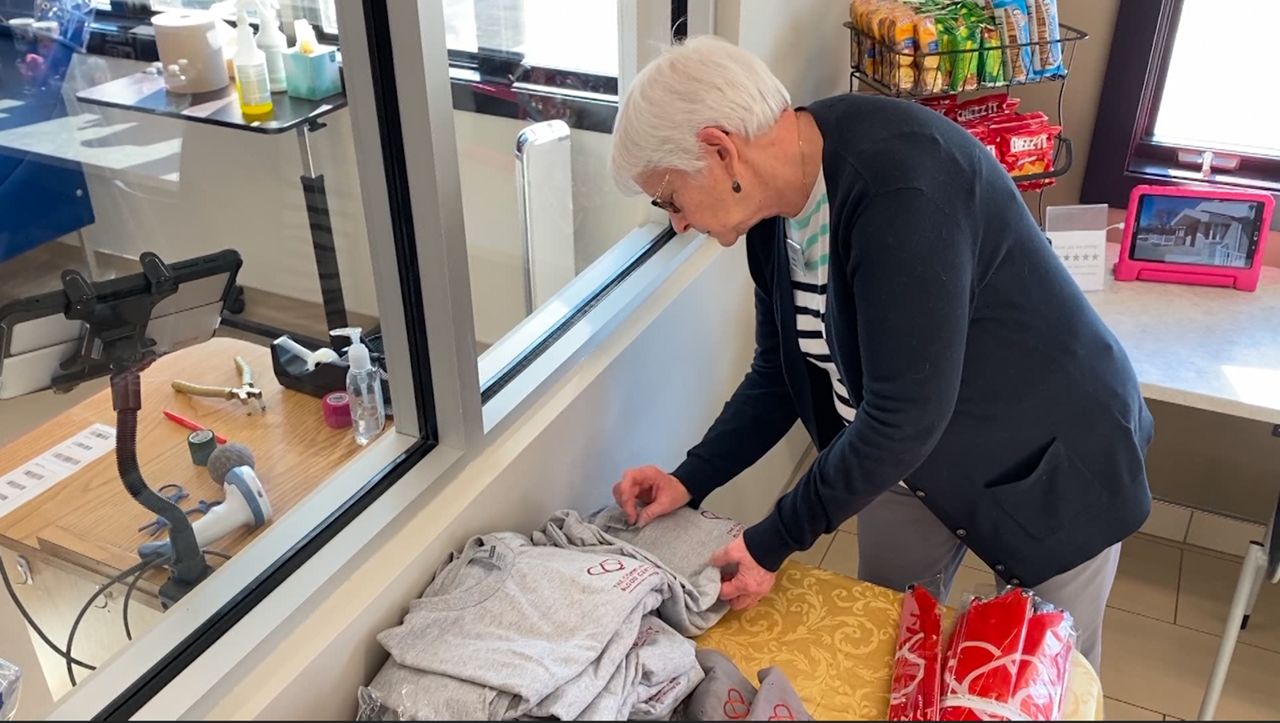
The center said one in seven people entering a hospital will need blood, but only 3% of Americans donate each year.
That’s part of why cafe volunteers treat their donors well. They said they want to ensure people come back.
“Sometimes people have a little difficulty after they donate. We make sure that they recover well,” said Bernard Schaber.
When Dawson finished donating, her fellow volunteer fixed her a hot chocolate.
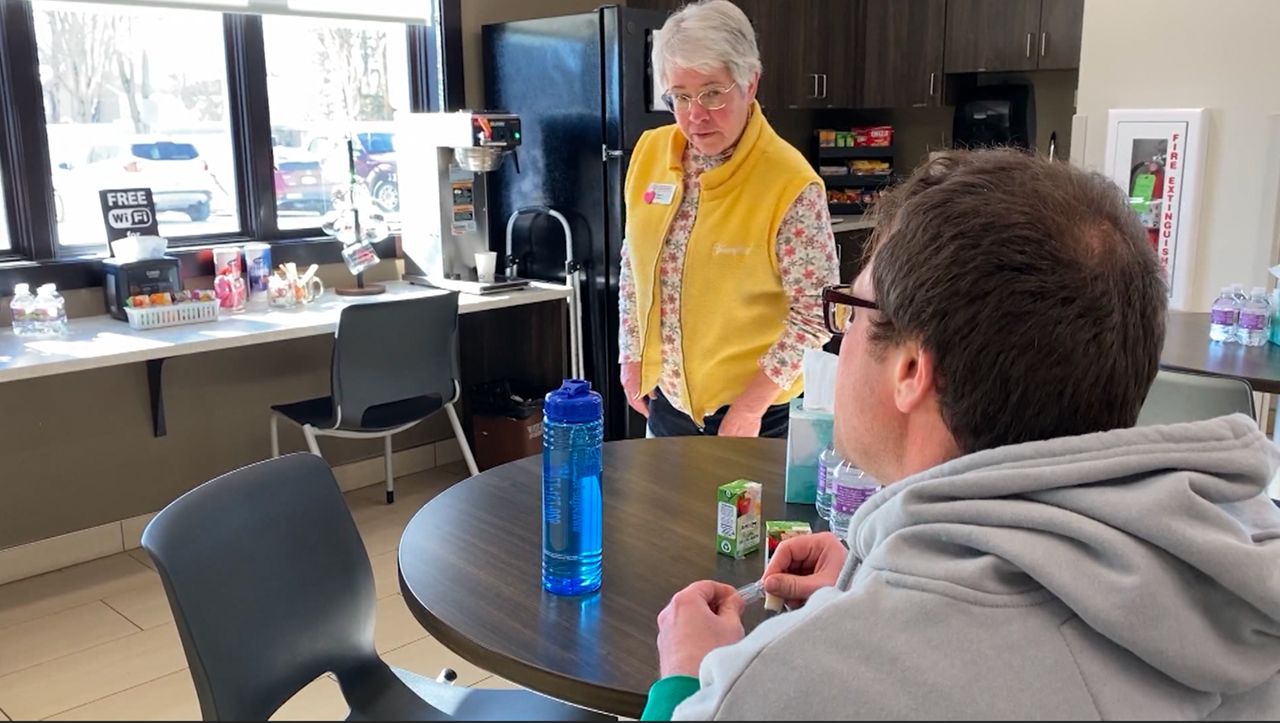
“Fluids are necessary after donating blood. We try to make sure everybody has something to eat and drink to keep their blood sugar up,” said Dawson.
They also monitor donors to make sure they’re safe to leave. Both volunteers said they enjoy interacting with donors.
“It helps me stay productive and positive, and you get to know the donors because they come in on a regular basis,” said Bernard Schaber.
The Community Blood Center said much like the need for blood, there’s always a need for more volunteers. They encourage anyone from high school to retirement age to sign up and help in the center or mobile units.
“They’re that warm person you encounter as you walk up to a blood drive,” said Klingberg. “They’re also that person who’s going to calm someone, who’s going to be anxious about blood donating, and ultimately, they’re that person who is serving the refreshments and making sure that they have a smooth recovery.”







